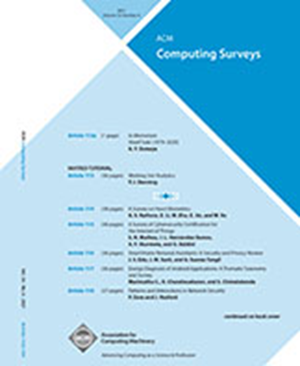mooc认证预测:系统文献综述
IF 28
1区 计算机科学
Q1 COMPUTER SCIENCE, THEORY & METHODS
引用次数: 0
摘要
大规模在线开放课程(MOOCs)一直在激增,为学习者提供免费或低成本的内容。然而,免费和付费课程的认证率都很低(分别在4.5% - 13%和1% - 3%之间)。因此,本研究旨在调查mooc认证预测模型,综合结果,以全面深入地了解这一领域,并探讨这些模型如何有助于解决极低的认证水平。我们采用了系统评价和荟萃分析方案的首选报告项目(PRISMA-P),以透明地进行本综述并报告所评审作品的结果。此外,本文还强调了当前预测模型中的几个趋势和局限性,包括一些方法上的问题:当前模型的可推广程度、实验人群的过度过滤、一些实验与实时场景的不兼容(非现实建模)以及模型性能的肤浅报告。我们还讨论了当前模型的可复制性以及为建立最先进的预测模型所做的持续努力。最后,我们强调了未来在MOOC认证预测领域的研究机会,要么处理现有模型的局限性,要么解决未解决的问题。本文章由计算机程序翻译,如有差异,请以英文原文为准。
Prediction of Certification in MOOCs: A Systematic Literature Review
Massive Open Online Courses (MOOCs) have been proliferating, offering free or low-cost content for learners. Nevertheless, the certification rate of both free and paid courses has been low (between 4.5% - 13% and 1% - 3%, respectively). Thus, this study aims to survey MOOCs certification predictive models, synthesise results for a comprehensive and deep understanding of this field and explore how these models contributed to addressing the very low certification level. We adopted the Preferred Reporting Items for Systematic Review and Meta-analysis Protocols (PRISMA-P) for transparently conducting the present review and reporting the results from the works reviewed. Additionally, this SLR highlights several trends and limitations within the present predictive models, including some methodological concerns: the extent to which the present models are generalisable, the excessive filtration of the experimental population, the incompatibility of some experiments with real-time scenarios (nonrealistic modelling), and the shallow reporting of model performances. We have also discussed the replicability of the present models and ongoing efforts towards building a state-of-the-art predictive model. Finally, we highlight future research opportunities in the field of MOOC certification prediction that either deal with the limitations of the present models or address unanswered questions.
求助全文
通过发布文献求助,成功后即可免费获取论文全文。
去求助
来源期刊

ACM Computing Surveys
工程技术-计算机:理论方法
CiteScore
33.20
自引率
0.60%
发文量
372
审稿时长
12 months
期刊介绍:
ACM Computing Surveys is an academic journal that focuses on publishing surveys and tutorials on various areas of computing research and practice. The journal aims to provide comprehensive and easily understandable articles that guide readers through the literature and help them understand topics outside their specialties. In terms of impact, CSUR has a high reputation with a 2022 Impact Factor of 16.6. It is ranked 3rd out of 111 journals in the field of Computer Science Theory & Methods.
ACM Computing Surveys is indexed and abstracted in various services, including AI2 Semantic Scholar, Baidu, Clarivate/ISI: JCR, CNKI, DeepDyve, DTU, EBSCO: EDS/HOST, and IET Inspec, among others.
 求助内容:
求助内容: 应助结果提醒方式:
应助结果提醒方式:


